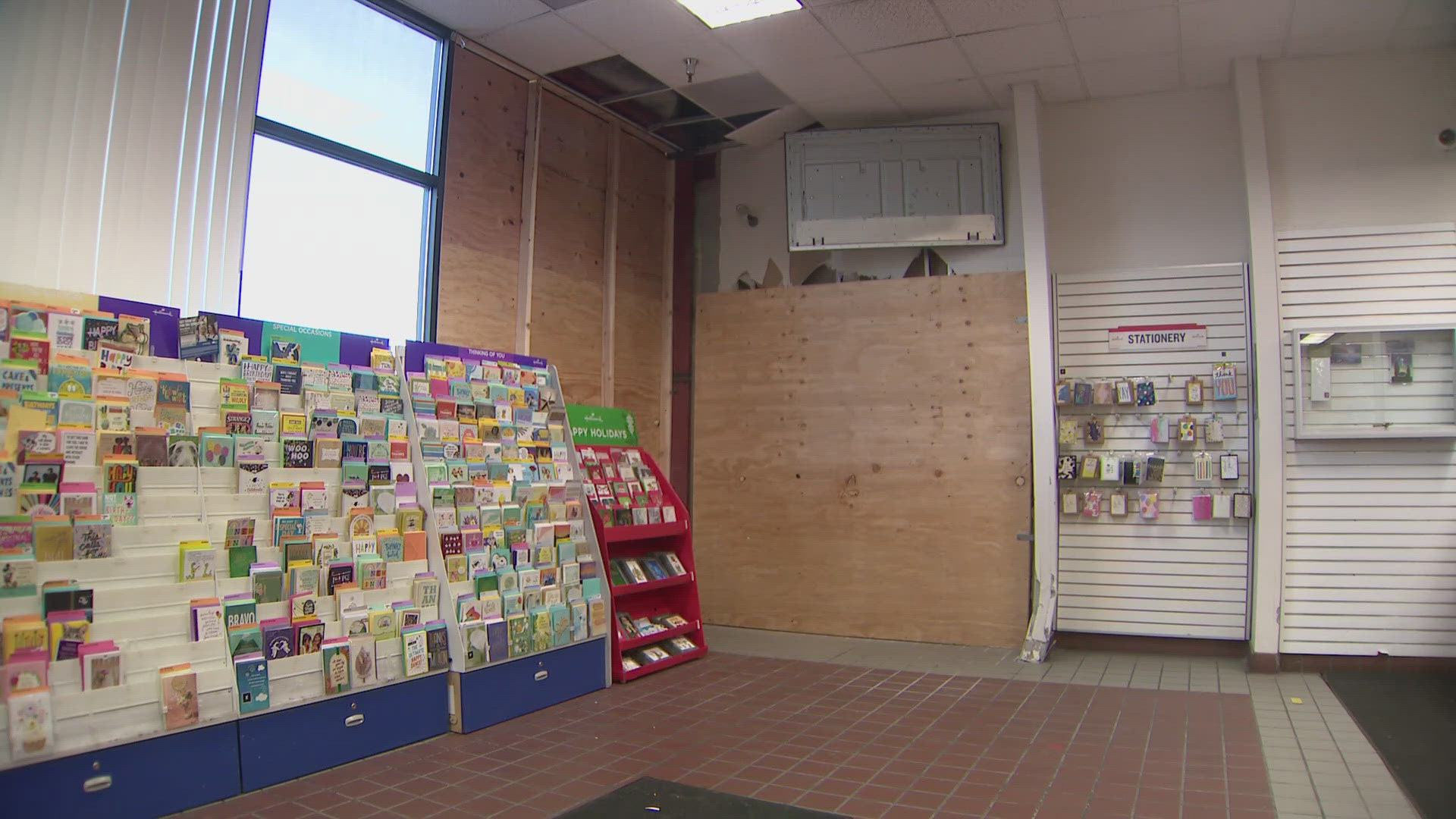The developments are a new setback for the U.S.-led coalition as a result of this month's sharp upturn in violence that is putting a dent in the campaign to rebuild Iraq. One major project now on hold is the repairing of generators at two power plants in southern Baghdad, which is key to meeting the whopping surge in electricity demand during Iraq's scorching summer. Foreign experts have been leaving the country and projects have slowed or stopped because of the wave of insurgent attacks on convoys and killings and kidnappings of foreigners. The U.S. Agency for International Development completely halted work in Iraq at the height of the violence -- April 9-14 -- and has still not sent foreign civilians back to work on about 10 percent of its projects, mainly in Baghdad and south-central Iraq, said Tom Wheelock, USAID's director for infrastructure projects. Just over 10 percent of USAID staff are out of the country, either sent away during the violence or unable to return, said a USAID official on condition of anonymity. USAID is an independent U.S. government agency that distributes American foreign aid. Siemens sent its employees out of the country soon after the German Foreign Minister warned April 12 that its citizens in the country should leave, said Iraqi Electricity Minister Ayham al-Samarei said. The firm was to finish its projects by May 15, and much of the work was complete, al-Samarei said. He expected the firm's employees to return within a week, but if not, he said, Iraqi engineers were capable of finishing the job. "I am sure they will come back," he told The Associated Press. "Siemens has lots of work in Iraq and if they go out they will be losing more than others. So their absence will be very short." Last year, Siemens won a contract for $95 million to provide a new 266 megawatt gas turbine. The German company was working with Bechtel to rehabilitate two units at Baghdad's Dora power plant. The company also worked on the Mussayab power station. Last month, a German and a Dutch national were killed in a shooting near Mussayab. The San Francisco-based Bechtel construction firm has stopped work at about 10 percent of its projects, mainly ones located in central and southern Iraq. Some personnel has been "relocated," said spokesman Francis Canavan. "Work continues at about 90 percent of our work sites," Canavan said. But at the remainder, "there may be a little work going on but it's (generally) suspended." The engineering firm has projects in six areas -- power, water, waste water, telecommunications and bridge renovation. General Electric, based in Fairfield, Conn., has suspended some operations in recent weeks because of the violence, but it is not pulling out, said GE spokesman Gary Sheffer. "We have had delays in some of our work in Iraq because of the security measures that have been put in place," Sheffer said. "Work is continuing in some cases. In some other cases the work has been delayed." Siemens spokesman Andreas Fischer, speaking from the company's headquarters in Munich, Germany, refused to say whether any or part of its Iraqi operations had been suspended. He also declined to say how many Siemens employees were in Iraq, nor would he give details on the company's Iraqi projects. "We are still committed to help to rebuild the infrastructure, and it is our intention to continue the work as long as we can assure the safety of our employees in Iraq," Fischer said. "We're working with our customers to meet our contractual obligations and we're going to meet them." Last month, gunmen killed a Briton and a Canadian who were working as security guards to protect foreign engineers working for GE. Sheffer said that while employee safety "is our top priority," GE remains committed to the reconstruction efforts. GE booked $450 million in orders last year and has projected $1 billion to $3 billion in business in Iraq by next year, Sheffer said. The work includes power generation, medical equipment and water treatment. Projects suspended include a pair of crucial electrical generation plants in southern Baghdad where Siemens and GE had been repairing generators, the USAID official said. The repairs and upgrades are critical to boosting Iraq's power generating capacity to 6,000 megawatts a day by summer, from current levels of about 4,000 megawatts. The increase in generating capacity still won't satisfy Iraq's growing demand for power, and daily rolling blackouts are expected to continue, albeit for smaller parts of the day. USAID also suspended work on two water treatment plants and four sewage treatment facilities in south-central Iraq. Wheelock said Iraqi workers were already back at work at most of its projects outside Baghdad and south-central Iraq. He said contractors working in hot zones were concentrating on parts of the projects that can be completed offsite. He said it was too early to tell whether current delays would prevent projects from being finished on time. U.S. Army Brig. Gen. Mark Kimmitt said last week that guerrilla ambushes on convoys could hamper reconstruction. U.S. officials have acknowledged that contractors have pulled out of Iraq, especially after a series of kidnappings of Westerners this month. Halliburton Co. said its KBR subsidiary had no plans to suspend operations in Iraq or pull out. "Absolutely not," said spokeswoman Wendy Hall in Houston. "KBR is resolved to continue support of the U.S. troops and to fulfill all contract obligations and move forward with the logistical support to troops, the reconstruction effort and assisting the Iraqi people rebuild the country's oil infrastructure."
Germany's Siemens pulls employees from Iraq, GE suspends some operations
BAGHDAD, Iraq (AP) - German engineering giant Siemens AG has pulled its employees out of Iraq because of security concerns, and USAID, U.S.-based General Electric Co. and Bechtel have suspended some operations, officials said Thursday.

